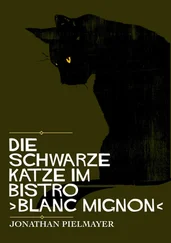The corporate clients’ petulance (I’d been on the phone with some of them all week, finding new ways to explain why and how they were being asked to subsidize work that would literally never be seen outside the doors of their ad agency) eventually gave way, over lunch, to the general mood of high anticipation. A Jean-Claude Milo unveiling was a big deal indeed, and there is always something invigorating about being part of the select. All the heads of marketing were there, PR people, art-loving corporate vice presidents and their comely secretaries. Jean-Claude’s dealer from New York, her assistant, nearly all of our staff who wanted to see the happening. About forty people in all. At two o’clock exactly, I unlocked the tall ballroom doors and we all ventured in.
In the ballroom all the heavy curtains were drawn, and the computer screens glowed blankly. A larger movie screen hung from just about the exact center of the ceiling. Jean-Claude was sitting underneath it, on a small red carpet, wearing a rough brown robe like some sort of Tibetan monk. I remember thinking that this might have explained the weight he’d lost — some sort of Eastern asceticism, some sort of exploration of Buddhism, maybe. Beside him was a rectangular table skirted with a black curtain: not unlike a table you might see a magician use. Jean-Claude himself was calm, engaged, smiling at everyone who made eye contact with him. When most of the murmuring had subsided, he looked at me and raised his eyebrows.
That’s everyone, I said.
Would you shut the door then, please, John? he said.
It was his normal voice — he was not in any sort of character; still, soft as it was, the sound of it silenced everyone even before I had the heavy doors pushed shut.
Jean-Claude stretched out his arms before him, paused a few seconds, then, with an air of great ceremony, clapped his hands twice; whereupon the lights went off. Ironic laughter, at this religious-ceremony-cum-infomercial: laughter that quickly subsided, though, maybe because we were now in almost total darkness.
A smell, a strange sort of artificial smell, sweet but excessive, like an overabundance of air freshener, seemed to rise up from the floor of the room. Then, one by one, all twenty or thirty of the small video screens at the computer-editing consoles flickered to life: each showed a different sequence of still shots of various works of art, some famous, some unknown to me, some I recognized as Milo’s own. They ran in a loop, slowly, at about the pace at which an old-fashioned slide show might go, and as they did, a sound arose from speakers Milo must have concealed all around the ballroom, an empty sort of crackling and hissing that had to emanate from an open microphone with no one in front of it, turned up louder and louder — I’m sure I wasn’t the only one feeling some dread lest someone actually start speaking into it, for it would have been earsplitting.
The sequence of artworks on the video screens looped a third time. Only this time, each image, after a few seconds, was consumed on the screen by a digital image of fire, creeping from the corners, blackening the center, until it was gone and the next image took its place. A murmur, audible to me even over the taped hiss of the unmanned microphone, went through the assembled. Then, on the larger, overhead screen, a simple white-on-black text began to scroll downwards.
This is what the words on the screen said:
If you were to go into the teahouse today, on execution day, and listen to what is being said, you would perhaps hear only ambiguous remarks. These would all be made by adherents, but under the present Commandant and his present doctrines they are of no use to me. And now I ask you: because of this Commandant and the women who influence him, is such a piece of work, the work of a lifetime, to perish? Ought one to let that happen? Even if one has only come as a stranger to our island for a few days?
At this point, though we could still see almost nothing, and any noise in the room would have been lost in the ambient sizzle of the empty mike, a stronger smell began to permeate the room, a chemical smell, something familiar but not easily identified.
The screens went blank. The hiss was cut off. Then, after a moment, we heard a familiar little trill of electronic bells, followed by another voice, instantly recognizable, the voice of James Earl Jones.
Thank you for using AT&T .
Laughter.
There was a sound, a whoosh like the sound of a tablecloth being snapped, and before anyone knew what was happening the center of the ballroom was lit by a kind of pillar of flame. I heard a couple of screams. Actually, though I say the room was lit, the weird thing was that that light seemed to draw everything into it; I don’t remember seeing any other faces or even any shadows; the flame itself was steady, it held its shape, like a cigarette lighter or something. It was the shape of a pear or an inverted teardrop, rising a few feet off the floor and coming to a sort of point, smack in the center of the field of darkness that was the ballroom. A different sort of acrid smell began to reach us.
Turn on the lights! someone screamed. It was Fiona’s voice. For just a moment I thought it was a collaboration, a part of the piece. Turn on the fucking lights, somebody, please!
We were a crowd, and we reacted as a crowd, even though we were still invisible to each other. All of us moved at the same time. I turned to grope my way back to the wall where I knew the switches were, and as I did I fell right over one of the corporate visitors, who had probably just stumbled over someone else. I heard the air escape from her with a little cry as my knee went down right into the center of her back. We were in a panic, and I will leave it to others to interpret at what point we were officially outside the boundaries of poor Jean-Claude’s masterpiece, if indeed we made it out of there at all.
The stench was unbearable, and it only seemed to feed the animal quality of our fear as we knocked each other down and banged our hands against the walls, searching no longer for the light switch, but for the door. Stand back! I screamed. Get away! Back off! but I have no idea if anyone heard me. By the time I got to the door and opened it — I dared to look behind me only once the light from the rest of the house had flooded in there — the fire had reached the heavy, floor-to-ceiling drapes and from there you pretty much knew that the whole old house was bound to go up.
Someone else called 911. Someone else at least had the presence of mind to run into the pantry for the fire extinguisher, though by that time the ballroom was like a furnace; the door to it couldn’t even be approached. Me, I ran like someone being pursued by the hounds of hell across the living room, through the front hall, and up the stairs. Colette was out on the third-floor landing, an inquiring look on her face, waiting, I suppose, for someone to come and explain to her what all the commotion was about. I pushed her out of my way as I turned on the landing and headed for the fourth floor.
Molly! I screamed. Molly! Get out of there! The bedroom door was locked; I pounded on it. Molly! Get out! I’m not kidding! It’s John! I pounded once more; then I took a step back, kicked right beside the doorknob, and splintered the wood around the lock. One more kick and I was in.
Molly!
She wasn’t there.
Like an idiot I wouldn’t believe it, I looked in every room up there and then I looked again: she was gone. By now I had gone through the panic, I suppose, come out on the other side of it. I was calm, but not in a level-headed sort of way. It was a stupid calm, one that caused me to walk rather than run to the fourth-floor landing and peer down the stairs as if I were waiting for the distant light of a train. My eyes smarted. Smoke was already finding avenues to the top of the house.
Читать дальше












